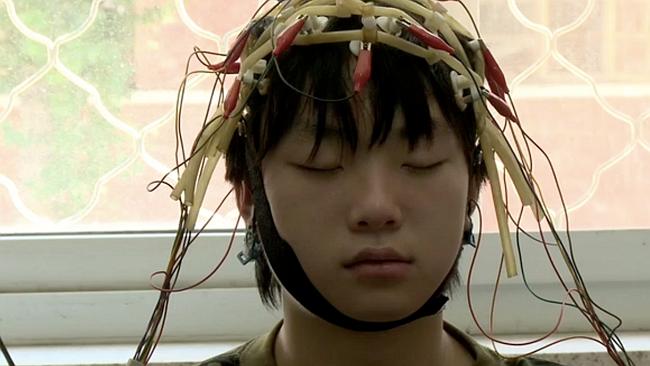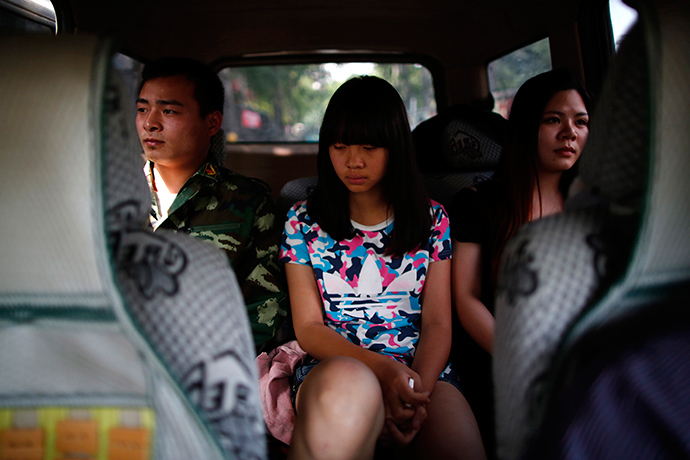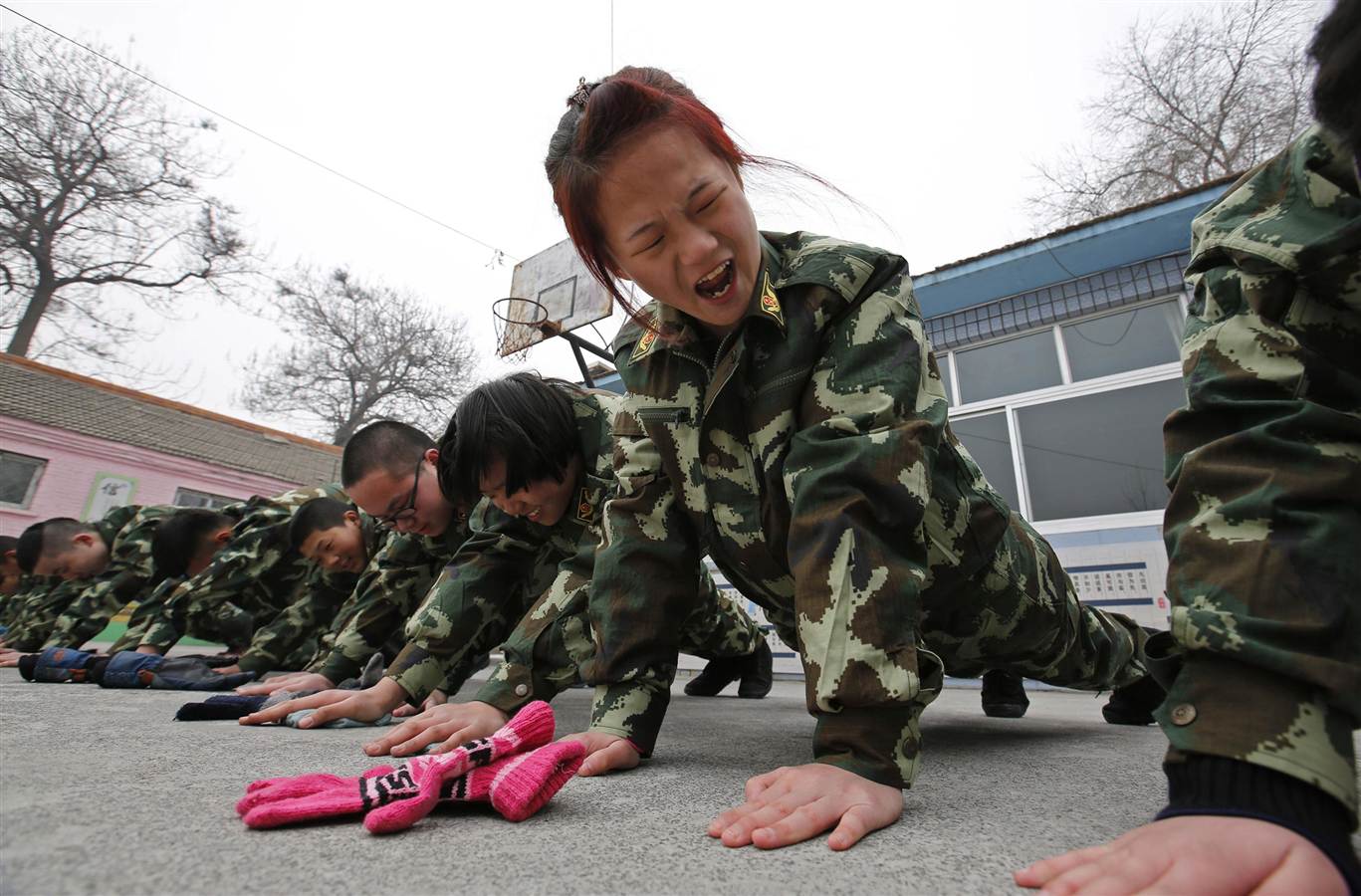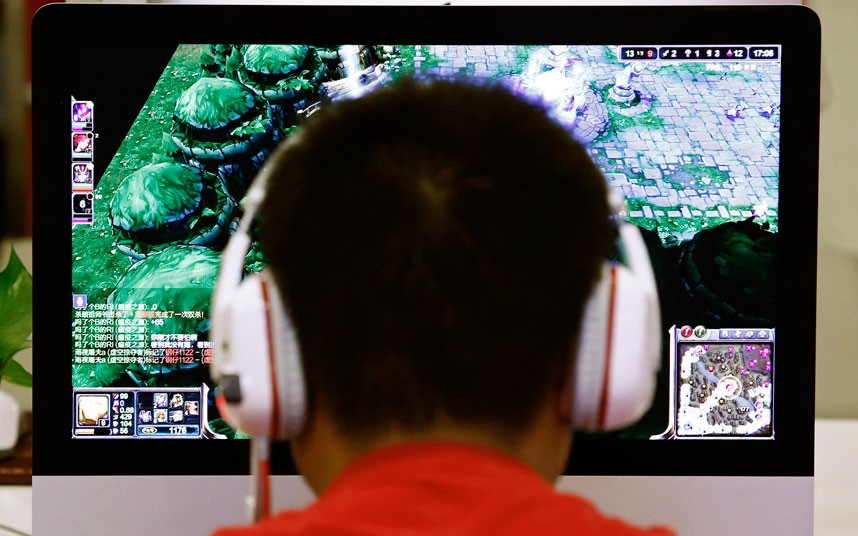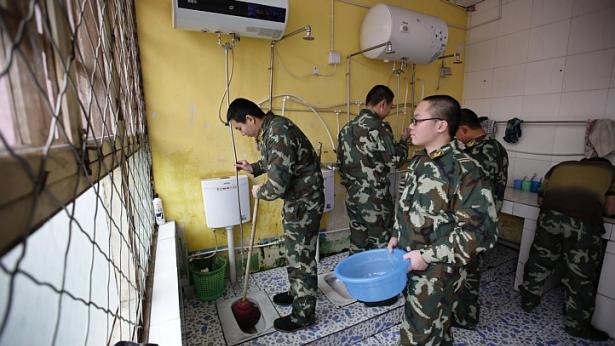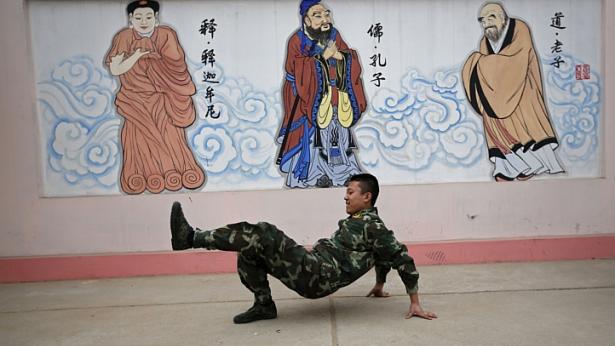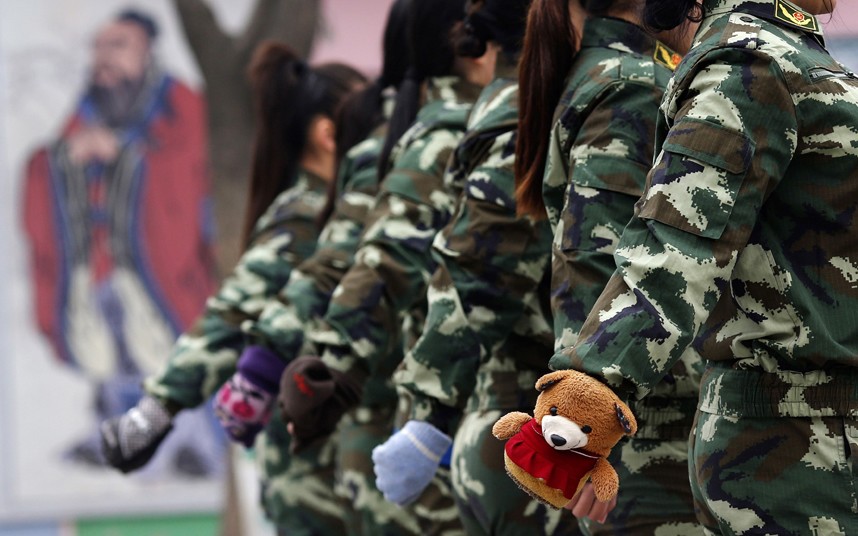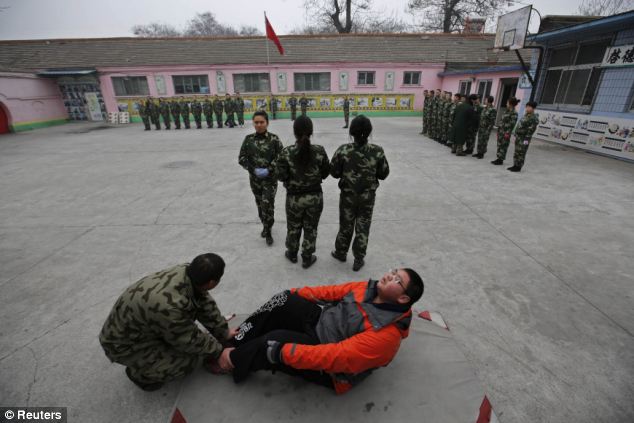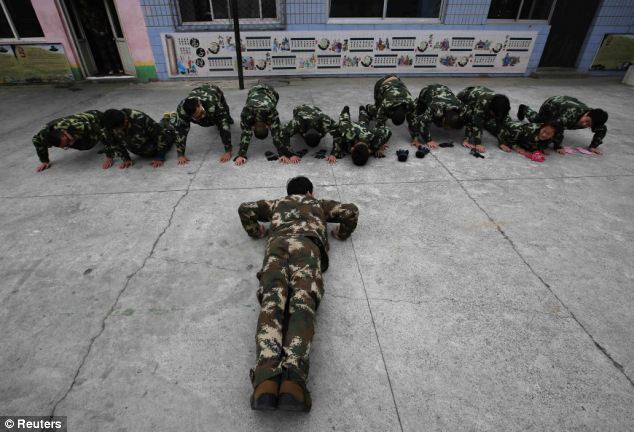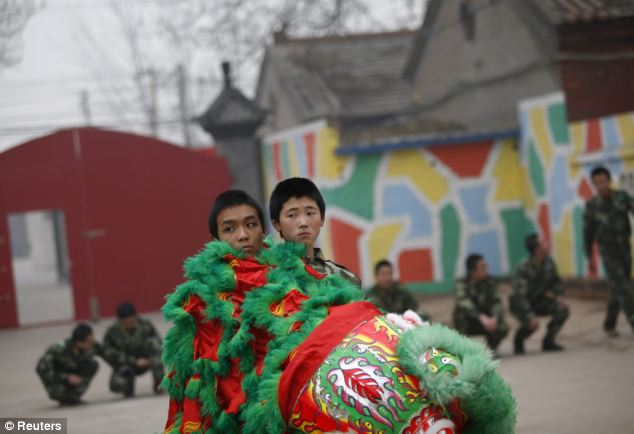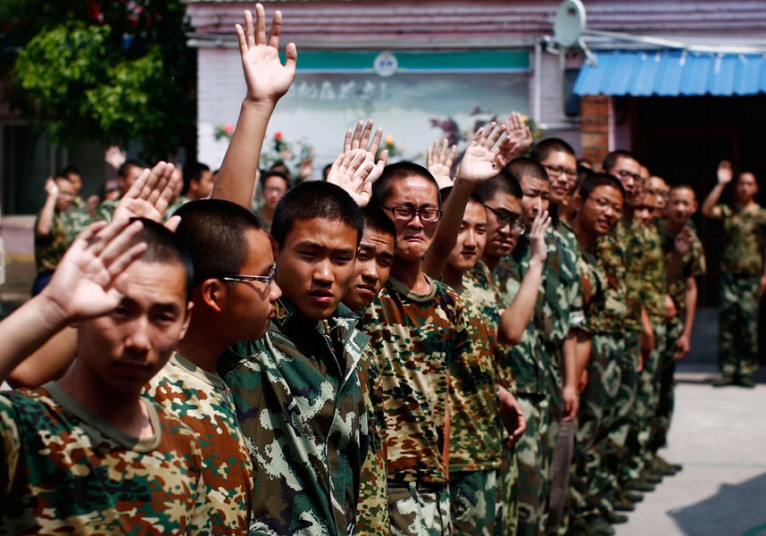[PHOTOS] How China Is Dealing With Internet-Addicted Teens Is Absolutely Shocking
Military style boot-camps are flourishing in China in order to break teenagers of their internet addiction. Some 250 camps are now functioning in the country alone – and the idea may spread.
Back in 2007, the New York Times reported that China had opened up an "Internet addiction boot camp" — a place where teens could be cured of excessive use of the Internet
Internet addiction is worrying China. Boot camp-style correctional facilities hope to deprogram those who live in online worlds
Image via news.com.auPatients, overwhelmingly male and aged 14 to 19, wake up in dormitories at 6:15 a.m. to do morning calisthenics and march on the cracked concrete grounds wearing khaki fatigues. Drill sergeants bark orders at them when they are not attending group and individual counseling sessions. Therapy includes patients simulating war games with laser guns. The center's tough-love approach to breaking Internet addiction is unique to China, but necessary in a country with over two million teenage Internet addicts, according to the facility's staff.
nytimes.comNow, the boot camps have proliferated. Up to 250 of them exist in China alone and following the Chinese example they have popped up in Korea as well
A female teacher and an instructor who is an ex-soldier, escort a girl in a car as they take her to the Qide Education Center at the request of her parents, in Beijing May 22, 2014
Image via rt.comTeens are almost always committed to such facilities by worried parents who see their children's grades falling as they spend more and more time surfing the web or gaming.
Students receive a group punishment during a military-style close-order drill class at the Qide Education Center, a military-style boot camp offering treatment for Internet addiction, in Beijing
Several years ago, the US created its own Internet addiction boot camp. As Motherboard reports:
America’s first Internet addiction treatment program, reSTART, which opened in 2009 in Seattle not far from Microsoft's headquarters, now has a youth program. And other behavioral modification programs usually targeted at rebellious and/or drug and alcohol-addled teens are adding Internet addiction to the laundry list of problems they solve. The US, however, should look at the proliferation of internet bootcamps in China as a cautionary tale.
Some 70% of the 110 children at the institution are being treated for problems instigated by Internet overuse. Overwhelmingly, Internet overuse involves immersion in online games.
Teachers and military instructors who pick up the troubled teenagers, at the request of their parents, aim to use military instruction to inculcate habits of discipline. "Internet-addicted children are in very poor physical condition,” said Mr Xing Liming, an official of the centre. “Their obsession with the Internet has harmed their health and they end up losing their ability to participate in a normal life.”
Students who formerly did nothing but move their fingers over mouse and keyboard all day must now do cleaning and washing and take turns helping to cook meals
Wang (left), who was addicted to internet gaming, helps clean a bathroom in his dormitory at the Qide Education Center in Beijing on Feb 19, 2014
Image via straitstimes.com"Education and living in a military environment makes them more disciplined and restores their ability to live a normal life,” said Xing. "The training improves their physical strength and helps to develop good living habits.”
Besides the drill and physical exercises, the courses, which run between four and eight months, cover classes in music and Chinese lion dancing
A student performs a dance during a break at the Qide Education Center in Beijing on Feb 26, 2014
Image via straitstimes.comCounselling sessions with psychologists aim to help victims rebuild self-confidence and their ties to family and friends. "My dream job was to be a game designer, but I realised I could not achieve it because I am not good at math and English,”said He, 23, who went through a six-month course that uncovered his passion for baking. “I think learning baking will help me find a job,” he said.
Taking a pictorial look at how China is curing its teens' Internet addiction:
Students stand in front of the Chinese national flag as they prepare to take part in a military drill at the Qide Education Center in Beijing on June 11
Image via s-nbcnews.comFemale students take part in a military-style close-order drill class. Military-style boot camps, designed to wean young people off their addiction to the internet, number as many as 250 in China alone.
Image via telegraph.co.ukA new student practices sit-ups while other students take part in a close-order drill at the Qide Education Centre in Beijing
Image via dailymail.co.ukThe methods are often considered to be more aggresive than clinics elsewhere in the world, including those in the U.S. which offer blocking and monitoring software and enforce internet bans
Image via dailymail.co.ukBesides the drill and physical exercises, the courses, which run between four and eight months, cover classes in music and Chinese lion dancing
Image via dailymail.co.ukStudents laugh as they receive a group punishment during a military-style close-order drill class at the Qide Education Centre
Image via dailymail.co.ukA student (left) takes part in a session with a psychology counsellor at the Qide Education Centre, in Beijing
Image via dailymail.co.ukStudents takes part in a music class as part of the education programme at the Qide Education Centre, in Beijing
Image via dailymail.co.ukStudents wave goodbye as they send off a classmate who graduated after finishing a six months course at the Qide Education Center
Whether or not the camps actually work is questionable, and in some cases, they might even cause more harm than good
Patients at an internet addiction boot camp in Guangzhou practice gardening
Image via smithsonianmag.comOne mother in China is suing a camp, claiming that her daughter's addiction only became worse after a stint at the facility, The Straits Times reports. In two extreme cases, boot camp patients died after being administered a beating as part of their therapy.
